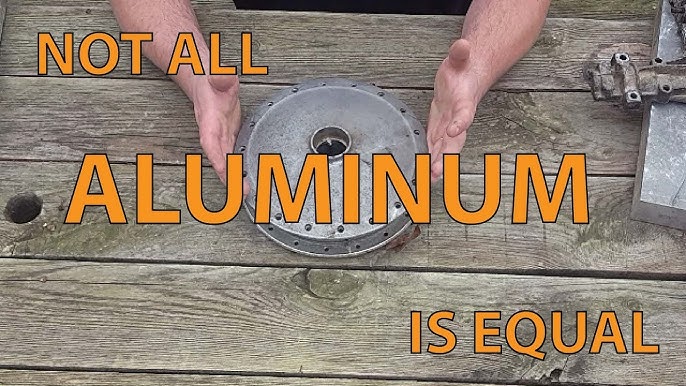An Unbiased View of Stahl Specialty Company
Table of ContentsIndicators on Stahl Specialty Company You Should Know3 Simple Techniques For Stahl Specialty CompanySome Known Details About Stahl Specialty Company Getting The Stahl Specialty Company To WorkThe 9-Minute Rule for Stahl Specialty Company
The refined distinction lies in the chemical material. Chemical Comparison of Cast Aluminum Alloys Silicon promotes castability by decreasing the alloy's melting temperature and improving fluidity during spreading. It plays a critical role in allowing intricate mold and mildews to be loaded precisely. Additionally, silicon adds to the alloy's toughness and use resistance, making it useful in applications where toughness is vital, such as vehicle components and engine elements.It also boosts the machinability of the alloy, making it easier to process right into ended up items. This way, iron adds to the general workability of aluminum alloys. Copper raises electrical conductivity, making it advantageous in electric applications. It also boosts corrosion resistance and adds to the alloy's general strength.
Manganese contributes to the toughness of light weight aluminum alloys and boosts workability. Magnesium is a lightweight aspect that supplies strength and effect resistance to light weight aluminum alloys.
It permits the manufacturing of light-weight elements with exceptional mechanical residential or commercial properties. Zinc improves the castability of aluminum alloys and aids regulate the solidification procedure during casting. It improves the alloy's strength and hardness. It is frequently located in applications where intricate shapes and fine details are necessary, such as decorative castings and specific auto components.
All About Stahl Specialty Company
Because aluminum-silicon alloys have good spreading properties, high gas properties, simple processes, and superb deterioration resistance, aluminum-silicon alloys are most typically used in the die-casting industry in the house and abroad. At the very same time, aluminum-silicon alloys are also fairly very early and commonly recognized alloys developed and made use of in die-casting. After continuous research study and renovation, the majority of the current worldwide mainstream aluminum-silicon alloys have actually been settled and are nothing more than A356, A360, A380, ADC12, B390, and A413.
The main thermal conductivity, tensile strength, yield toughness, and elongation differ. Among the above alloys, A356 has the highest possible thermal conductivity, and A380 and ADC12 have the lowest.

The Ultimate Guide To Stahl Specialty Company
In accuracy casting, 6063 is fit for applications where complex geometries and top quality surface area finishes are critical. Examples consist of telecommunication units, where the alloy's superior formability enables streamlined and cosmetically pleasing layouts while maintaining structural stability. Likewise, in the Lighting Solutions industry, precision-cast 6063 parts develop elegant and reliable illumination fixtures that need complex shapes and excellent thermal efficiency.
(https://hearthis.at/frances-howard/set/stahl-specialty-company/)
The A360 exhibits premium elongation, making it perfect for complicated and thin-walled parts. In precision casting applications, A360 is appropriate for sectors such as Customer Electronics, Telecommunication, and Power Tools.

In accuracy casting, aluminum 413 radiates in the Customer Electronic Devices and Power Tools sectors. It's commonly made use of to craft complex parts like smartphone real estates, cam bodies, and power device housings. Its accuracy is remarkable, with tight tolerances up to 0.01 mm, making certain flawless product setting up. This alloy's exceptional deterioration resistance makes it an outstanding option for exterior applications, ensuring long-lasting, durable products in the pointed out sectors.
Excitement About Stahl Specialty Company
When you have actually determined that the aluminum die casting process appropriates for your job, a crucial next step is selecting the most proper alloy. The aluminum alloy you choose will considerably affect both the casting procedure and the buildings of the last product. Because of this, you should make your decision carefully and take an enlightened technique.
Identifying one of the most appropriate light weight aluminum alloy for your application will suggest evaluating a wide selection of characteristics. These relative alloy characteristics adhere to the North American Die Spreading Organization's guidelines, and we've divided them right into 2 groups. Foundry. The initial category addresses alloy features that impact the production procedure. The second covers features influencing the residential properties of the end product.
The alloy you select for die spreading directly influences several elements of the casting procedure, like just how simple the alloy is to collaborate with and if it is susceptible to casting defects. Warm cracking, also called solidification breaking, is a normal die spreading issue for light weight aluminum alloys that can result in inner or surface-level rips or cracks.
Little Known Facts About Stahl Specialty Company.
Particular light weight aluminum alloys are a lot more prone to hot cracking than others, and your option must consider this. One more common defect found in the die spreading of aluminum is pass away soldering, which is when the actors stays with the die wall surfaces and makes ejection difficult. It can harm both the cast and the die, so you should try to find alloys with high anti-soldering homes.
Corrosion resistance, which is already a notable attribute of light weight aluminum, can differ substantially from alloy to alloy and is a crucial particular to think about depending upon the environmental conditions your item will certainly be subjected to. Wear resistance is another residential or commercial property commonly looked for in light look at this site weight aluminum products and can differentiate some alloys.